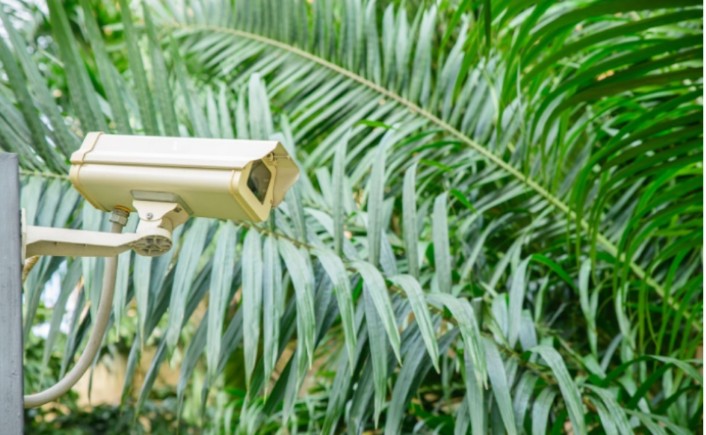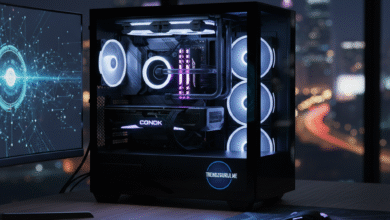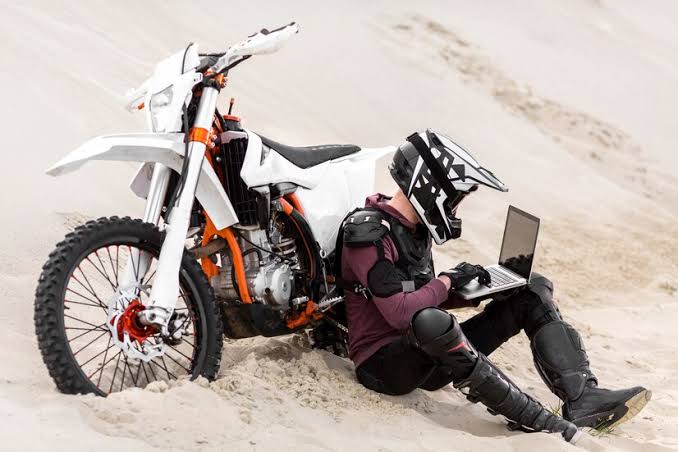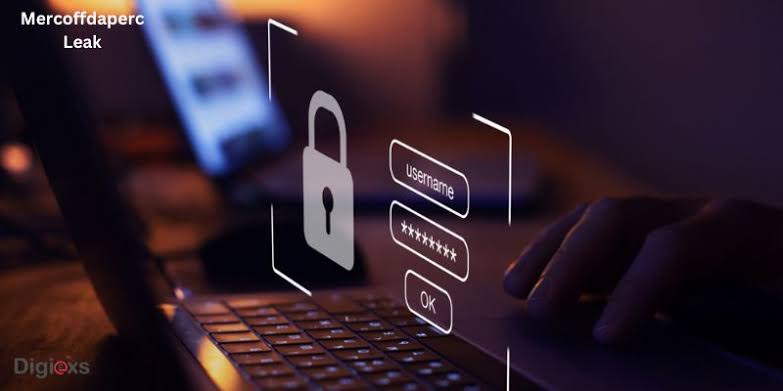Common Mistakes in Residential CCTV Installation to Avoid

When securing your home, a residential CCTV installation is one of the best lines of defense against crime. However, installing security cameras at home is more complex than simply placing a few cameras around the house. From camera placement to the technical setup, there are many details to consider, and even minor missteps can compromise your system’s effectiveness. This article will explore the most common mistakes homeowners make with residential CCTV installation and how to avoid them to ensure your home is well-protected.
1. Poor Camera Placement
One of the most common mistakes in residential CCTV installation is placing cameras in suboptimal locations. Many homeowners overlook the best spots for camera placement, such as:
- Entrances and Exits are the most critical areas to monitor. However, cameras should not be positioned to capture visitors directly facing the door, as this may not capture clear images if the subject is too close or too far from the camera.
- Vulnerable Spots: Areas like basement windows, backdoors, and garage entries are often forgotten during setup, but these are common entry points for intruders.
When installing security cameras, ensure they cover all the main points of entry and any potential weak spots around your property. Additionally, you should avoid placing cameras where obstructions, such as trees, walls, or other structures could block the view.
2. Incorrect Camera Angles
Even if cameras are placed strategically, improper angling can limit their effectiveness. Cameras angled too high or low may miss critical details, like license plates or faces. The correct angle for a camera often depends on its purpose:
- Wide-Angle Cameras: These are best for large areas like driveways or backyards, but they should be angled to capture movement across the entire space without losing detail.
- Narrow-angle cameras are ideal for hallways or entry points and should be set to capture a clear, frontal view of anyone entering.
Ensure each camera is correctly adjusted to maximize visibility and minimize blind spots. Testing the camera angles at different times of the day can also help you find the optimal setup to avoid shadows or glares that obscure footage.
3. Neglecting the Lighting Conditions
Lighting is crucial for adequate CCTV footage, but it’s a factor that many homeowners overlook. Poor lighting can cause visibility and image quality issues, especially at night or during dimly lit hours. Here’s how lighting issues can be managed effectively:
- Avoid Direct Sunlight: Cameras aimed at areas with direct sunlight can suffer from overexposure, resulting in blurry or washed-out footage. Instead, position cameras with less intense sunlight or adjust the angle to minimize glare.
- Use Night Vision or Infrared Cameras: If your home has limited exterior lighting, night vision or infrared cameras are essential to capture clear footage after dark.
- Consider Motion-Activated Lighting: Installing motion-sensor lights in conjunction with your cameras can help illuminate the area if motion is detected, providing better footage and potentially deterring intruders.
4. Choosing the Wrong Camera Type
Residential CCTV installation isn’t a one-size-fits-all process; not all cameras are suited for every location or purpose. For example, some homeowners opt for inexpensive indoor cameras for outdoor areas, leading to durability issues over time. Here’s a quick guide to selecting the right type:
- Indoor vs. Outdoor Cameras: Outdoor cameras are built to withstand weather conditions, while indoor cameras aren’t. Placing an indoor camera outside can lead to malfunctions and reduced camera life.
- Dome vs. Bullet Cameras: Dome cameras are typically more discreet and can cover more expansive areas, making them suitable for indoor or outdoor common areas. Bullet cameras are better suited for targeted areas and are often used to cover entrances and specific points of interest.
Understand each type’s advantages and choose durable cameras, appropriate for the environment, and align with your security objectives.
5. Ignoring Network Security
With the advent of intelligent security systems, many CCTV installations are now connected to the internet, making network security a crucial consideration. However, some homeowners need help to secure their network, which can leave the system vulnerable to hacking. To protect your system:
- Change Default Passwords: One of the most straightforward yet overlooked steps in residential CCTV installation is updating default passwords on cameras, routers, and storage devices.
- Use Strong Encryption: Ensure your Wi-Fi network uses WPA3 or WPA2 encryption for added security. Avoid using outdated encryption methods, which can be more susceptible to hacks.
- Enable Two-Factor Authentication (2FA): Some security camera systems offer 2FA, adding an extra layer of protection. Always use this option if available.
6. Skipping Regular Maintenance
Many homeowners must remember that CCTV systems require regular maintenance to function optimally once installed. Over time, cameras can collect dust, wiring can become frayed, and software can become outdated. Regularly clean your cameras, check the wiring, and ensure software updates are installed. Doing so can help extend the life of your security system and prevent unexpected malfunctions.
7. Overlooking Data Storage
Data storage is another crucial consideration for a residential CCTV system, yet it must be addressed more frequently. Many homeowners must pay more attention to how much footage a camera can accumulate, leading to data loss or system lag. Here’s how to avoid common storage issues:
- Choose the Right Storage Option: Depending on your needs, you can opt for local storage on a hard drive or cloud-based storage. While cloud storage offers the advantage of remote access and larger capacity, local storage can provide faster access and is typically more secure.
- Regularly Clear or Back Up Footage: Avoid data overload by periodically clearing old footage or backing it up if it needs to be saved. Some systems have settings that automatically overwrite old data but check this function periodically.
8. DIY Installation Mistakes
Some homeowners attempt to install their CCTV system to save costs, but with proper expertise, this can lead to better results. Common DIY errors include:
- Improper Wiring: Improper cable management can result in weak connections or exposure to weather elements, damaging the system over time.
- Incorrect System Configuration: DIY installers must pay more attention to essential configurations like motion sensitivity, zone selection, and storage settings, resulting in too many false alarms or missed events.
When in doubt, consider consulting a professional security camera installation company to ensure the system is set up correctly and efficiently.
9. Lack of Privacy Considerations
Residential CCTV installation must also respect privacy. Pointing cameras at public areas or neighboring properties can lead to privacy concerns and, in some cases, legal consequences. Here are some points to consider:
- Understand Local Regulations: Some areas have laws restricting where cameras can point, especially if they face public or shared spaces.
- Set Up Privacy Zones: Many modern systems allow you to create “privacy zones,” which block out specific parts of the camera’s view to prevent the camera from capturing areas outside your property.
Respecting others’ privacy will help prevent potential disputes and ensure your security setup is legally compliant.
10. Relying Solely on CCTV for Security
While CCTV cameras are a significant component of home security, relying on them exclusively may be a mistake. Homeowners should adopt a layered approach to security, combining CCTV with other measures such as:
- Smart Locks prevent unauthorized access to your home and can complement CCTV by alerting you when someone tries to gain entry.
- Motion Sensors: Motion sensors can trigger alarms or activate lights, working with CCTV to enhance security.
A comprehensive security setup offers more robust protection than cameras alone, as it incorporates multiple layers of defense.
Partner with HD Cameras USA for Professional Installation
For a truly effective and reliable residential CCTV installation, partnering with a professional security camera installation company like HD Cameras USA is essential. HD Cameras USA has earned a reputation as one of the best residential CCTV installation service providers for their expertise, dedication, and innovative security solutions. They operate across Florida with multiple locations to serve you, including:
- HD Cameras USA – West Palm Beach, FL
- HD Cameras USA – Fort Lauderdale, FL
- HD Cameras USA – Apopka, FL
- HD Cameras USA – Orlando, FL
- HD Cameras USA – Lakeland, FL
- HD Cameras USA – Miami, FL
- HD Cameras USA – Tampa, FL
- HD Cameras USA – Daytona, FL
- HD Cameras USA – Jacksonville, FL
Whether you need guidance on complete security system setup or are searching for a security camera installation companies near me option, HD Cameras USA can provide expert insights, high-quality equipment, and customized security plans tailored to your home’s unique needs.
Conclusion
Installing a CCTV system can be a game-changer for home security, but only when done correctly. Avoiding these common mistakes can ensure that your CCTV installation is practical, durable, and compliant with privacy considerations. If you’re unsure, consulting a professional like HD Cameras USA can make all the difference in achieving a secure and reliable security camera setup for your home.



